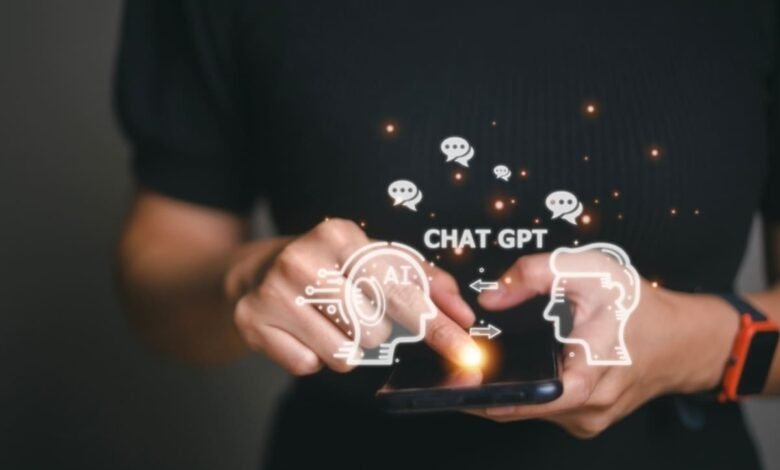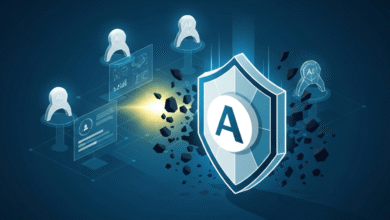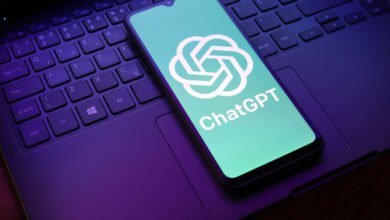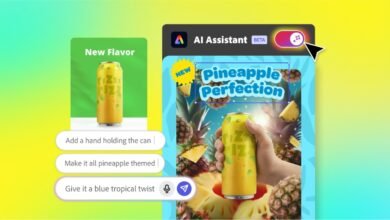ChatGPT Adds Travel, Learning, and Real Estate Apps

▼ Summary
– OpenAI introduced third-party apps integrated directly into ChatGPT in October 2025, powered by the Apps SDK for seamless user interaction within the chat interface.
– The Apps SDK, built on the open Model Context Protocol (MCP), enables developers to create apps that blend conversation with interactive features and is open source for broad ecosystem adoption.
– AgentKit allows developers to build autonomous AI agents that plan and execute multi-step tasks using tools like web browsers and calendars, enhancing user delegation of complex activities.
– Pilot partners including Booking.com, Canva, and Spotify offer apps for tasks like travel booking and design, initially available to users outside the EU with contextual discovery in conversations.
– Safety measures include strict usage policies, transparent privacy practices, and user controls over data access, with future plans for an app directory and monetization via the Agentic Commerce Protocol.
ChatGPT is transforming into a powerful, all-in-one platform with the introduction of integrated third-party applications for travel, learning, and real estate. This major update, announced in October 2025, moves the AI beyond simple conversation, allowing users to interact with a wide array of functional tools directly within the chat interface. Supported by a new Apps SDK, this evolution empowers developers to build rich, interactive experiences that merge natural language with practical applications, fundamentally enhancing how people accomplish tasks.
The platform is shifting from a purely text-based conversational model to a dynamic environment where users can access external services contextually. These apps activate either through direct user command or when ChatGPT intelligently suggests them at the most relevant moment. For instance, you can now plan a vacation using Booking.com, design graphics with Canva, further your education through Coursera, or browse property listings, all without ever leaving the ChatGPT window. The integration is designed to feel intuitive, fitting naturally into the conversational flow.
At the core of this innovation is the newly released Apps SDK, currently available in a preview state. Built upon the open Model Context Protocol (MCP), this toolkit allows developers to define both the conversational logic and the interactive interfaces of their apps. By making the SDK open source, OpenAI signals its commitment to fostering a broad and interoperable ecosystem that can extend to any platform adopting the MCP standard.
For users, this translates to seamless feature integration. The SDK enables apps to run anywhere MCP is supported, offering developers significant flexibility. They can connect their existing backend systems to ChatGPT, allowing customers to log into accounts, access premium content, or utilize functionalities normally found on separate websites. OpenAI provides comprehensive design guidelines and a repository of sample apps to help developers create experiences that tightly weave conversation and interactivity, ensuring help appears exactly when it’s needed.
Safety and user trust are foundational to this new ecosystem. All apps must adhere to strict usage policies, be suitable for all audiences, and comply with any partner-specific regulations. Transparency is maintained through clear privacy policies and a commitment to minimal data collection. Upon first connecting to an app, ChatGPT explicitly informs users about what data will be shared and requests permission. Future updates promise even more granular controls, letting users specify precisely which data categories an app can access for personalization.
Enhancing the app experience is AgentKit, a sophisticated set of tools for building intelligent, autonomous agents. These agents go beyond simple interactions; they can plan, reason, and execute multi-step tasks that involve various tools and data sources. An agent can interpret a user’s natural language request, devise a plan using tools like a web browser or calendar, and then carry out the task autonomously, all while narrating its decisions. This allows users to confidently delegate complex responsibilities like travel booking or schedule management, with built-in safeguards that monitor for errors and require confirmation for sensitive actions.
AgentKit unifies previous OpenAI research projects, such as browser automation and multi-document synthesis, into a single, coherent interface for interacting with real-world software through secure APIs. This gives developers extensive control, enabling them to embed these powerful agents into customer support systems or enterprise dashboards, marking a significant shift toward more intelligent automation.
The initial launch features pilot partners including globally recognized names like Booking.com, Canva, Coursera, Figma, Expedia, Spotify, and Zillow. These apps are available to ChatGPT users on free, Go, Plus, and Pro plans outside the European Union, with support in English. OpenAI plans to add more partners later in 2025 and expand availability to EU users shortly. The apps are designed for easy discovery, appearing contextually in conversations or when invoked by name, ensuring they fit fluidly into everyday workflows.
Looking forward, OpenAI intends to roll out these apps to Business, Enterprise, and Education plans, catering to professional and organizational needs. The company will soon open app submissions to a wider developer community and launch a dedicated app directory for users to browse and search available tools. High-quality apps that meet specific design and functionality standards will receive prominent placement. A monetization strategy is also in development, including support for the Agentic Commerce Protocol, an open standard that could enable instant checkout and commerce directly within ChatGPT, potentially transforming the platform into a vibrant marketplace for AI-powered services.
The introduction of third-party apps fundamentally redefines ChatGPT from a standalone conversational AI into a versatile platform capable of orchestrating a vast range of digital experiences. Users can accomplish tasks more efficiently without switching contexts. Furthermore, the advanced capabilities of AgentKit agents enable the delegation of complex, multi-step tasks, making ChatGPT not just a reactive tool but a proactive and autonomous partner in managing real-world responsibilities. This represents a major step forward in how artificial intelligence integrates into daily digital life, seamlessly blending language comprehension with practical, actionable tool use.
(Source: Economy Middle East)





